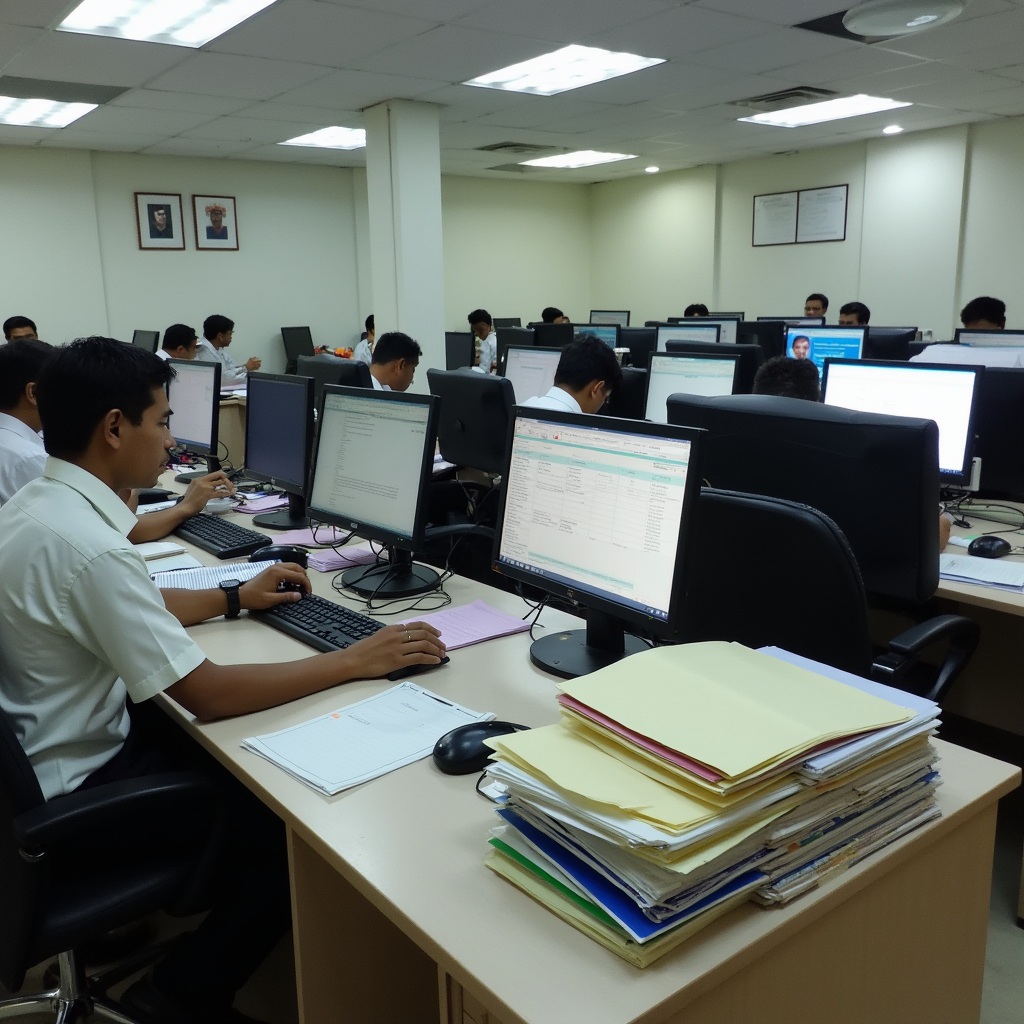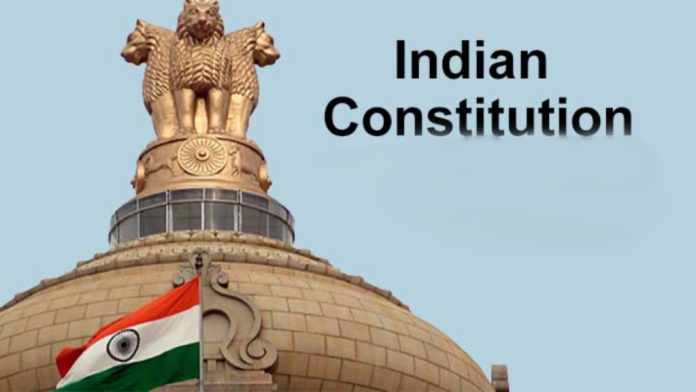This article is written by Monesh Mehndiratta. The article deals with Article 22 of the Constitution, which protects the rights of arrested persons and those detained in police custody or by any other detaining authority. It explains the various rights contained therein and further delves into the several legislations and landmark cases seen from time to time, to strengthen such rights.
Table of Contents
Introduction
Do you know what to do if you are ever arrested or detained?
Did you know that the rights of people who have been arrested or detained, have been protected by our Constitution?
Did you know that no police officer or authority can arrest you without any reason?
By the end of this article, you will be made aware of the same. It delves into a detailed explanation of Article 22 of the Constitution, which provides protection from arrest and detention. It also embodies the rights available to a person who has been arrested or detained within its ambit. One question in this regard would be what if a person has been detained or arrested under preventive detention laws? One particular portion of Article 22 deals with preventive detention as well under which the government and the authorities have the power to detain a person if there are reasonable grounds to do so. Additionally, the Advisory Board is vested with the power to determine whether such arrest or detention is necessary. All this has also been explained in the article.
Many landmark judgements related to rights and protection contained in Article 22, have been pronounced by the Honourable Supreme Court. These judgments provide a clear picture regarding the law and guidelines to be followed in case a person is arrested or detained.
Explanation of Article 22 of the Indian Constitution
Article 22 of the Indian Constitution provides protection from and against arrest and detention in certain cases. The seven clauses of the Article has been explained below:
- Article 22(1) provides that no person can be arrested or detained without providing the reasons for the same. The person is also entitled to consult or be defended by a legal practitioner of his choice.
- Article 22(2) further provides that the person arrested or detained in custody must be produced before the nearest Magistrate within 24 hours of his arrest or detention. This time period does not include the time taken to travel from the place of arrest to the court of the Magistrate. Further, it provides that no person can be detained in custody after the above-mentioned period has passed, without the permission of the Magistrate.
- Clause (3) is an exception to Article 22(1) and 22(2). It states that the said clauses are not applicable to:
- An enemy alien; or
- Any person who has been arrested or detained under any preventive detention law.
- Article 22(4) provides that no person can be detained for more than three months under any law relating to preventive detention, unless it has been opined by the Advisory Board that such detention is justified.
- As per Article 22(5), it is mandatory to disclose the grounds of arrest or detention to the arrestee or person detained in custody. The person must also be given an opportunity to make representation against the order of his detention.
- Article 22(6) states that the detaining authority is empowered to not disclose facts that are against public interest, while disclosing the grounds of arrest or detention to the concerned person.
- Under Article 22(7), lays down:
- That the Parliament has been empowered to prescribe circumstances or classes under which a person may be detained for more than three months, without obtaining any opinion of the Advisory Board.
- Maximum period for which a person can be detained under preventive detention laws.
- Procedure to be followed by an Advisory Board in an inquiry as per clause 4 of Article 22.
Objective and applicability of Article 22
Article 22 embodies certain procedural safeguards against arrest or detention within its scope. These safeguards help in avoiding any miscarriage of justice, by acting as a kind of check and balance on the powers of police officers making arrests and authorities empowered to detain a person. Article 22 also lays down certain rights available to a person who has been arrested or detained.

These safeguards are available to all people, irrespective of whether they are citizens of India or not. This is because the right to equality is guaranteed to every person whether citizen or non-citizen and these safeguards must be also available to all. However, it cannot be availed by an enemy alien, that is, a national of any country with whom India does not have friendly relations. These are applicable to all arrests, except those made under a warrant issued by the court. The warrant must be issued upon an allegation or accusation of an actual or suspected commission of an offence or there must be an apprehension of commission of offence by a person.
The offence can either be criminal or quasi-criminal in nature or any activity prejudicial to the interests of the state. However, these safeguards are not applicable to a person arrested or detained in a civil matter. For example, a person arrested to recover land revenue cannot avail these safeguards. Another exception to the applicability of this Article, is when there is no allegation or accusation of any actual or apprehended commission of an offence by a person.
Preventive detention in India
Article 22 provides protection from arrest and detention in some cases. Despite this, preventive detention is allowed in India. In order to understand Article 22, let us first delve into the concept of preventive detention, circumstances under which it can be allowed and its history in India. The concept of detention as a punishment is not new to India. Its existence can be witnessed since India was a colony of England.
The Bengal Regulation III of 1818 and similar enactments in Madras and Bombay, laid no fetters on the power of the government to detain a suspected person. Rule 26 of the Defence of India Act, 1939 authorised the government to detain a person upon satisfaction that such detention is necessary to prevent the person from carrying out any prejudicial or illegal activities against the defence and safety of the country. This was based on a legislation enacted in England during World War II, whose validity was also challenged and upheld by the House of Lords. The practice of preventive detention continued in India, with an aim to suppress breach of public order, public safety, etc.
The framers of the Constitution realised that the circumstances which led to the enactment of such a legislation related to preventive detention in the past, have not disappeared after independence, and therefore, it was felt necessary to continue with it. However, it must be subject to certain safeguards. In order to prevent the country from anti-social activities and subversive forces, the power to detain a person in custody was conferred upon the State. However, this power was subject to certain constitutional safeguards, which if violated, remedies can be sought by approaching the Supreme Court or High Courts. These safeguards are known as fundamental rights, which must be enforced and if not, constitutional remedies can be sought.
Meaning of preventive detention
Detention is of two types:
- Punitive detention
- Preventive detention
Punitive detention is used to punish a person who has already committed an offence, while preventive detention is used to prevent a person from committing an offence or from carrying out illegal activities. A person is detained before he commits an offence, as a measure of precaution. In this situation, neither any charge is framed nor any offence is proved, but there is a strong suspicion and reasonable apprehension that the person might commit an offence.
If a person has been detained in custody without trial, it is known as preventive detention. The objective of punitive detention is to punish a person for commission of an offence after the trial. Preventive detention seeks to prevent a person from allegedly committing an offence or any illegal activity in the near future. Preventive detention takes place in case there is an apprehension that a person may carry out prejudicial activities against the security or integrity of state, public order, defence etc, if not detained. This kind of detention is used wherein the authority has no sufficient evidence to make charges against the person, but can satisfy and justify his detention on the ground of suspicion.
The difference between punitive and preventive detention lies in the fact that constitutional safeguards are available against preventive detention. Such laws which restrict the freedom of a person, must be exercised with due caution and as an alternative to ordinary laws.

In the case of S.P. Dave vs. Union of India (2014), it was held that absconding is not a ground for preventive detention and no order can be made for the same. Further, in the case of A.K. Gopalan vs. State of Madras (1950), the court highlighted the need for such a provision and held that it has been included in the Constitution of India in order to prevent the abuse of freedom by anti-social activities.
However, certain safeguards have been provided under clauses 4 to 7 of Article 22. The Honourable Supreme Court in the case of Haradhan Saha & Anr. vs. State of West Bengal (1975), held that the principles of natural justice are to be considered while determining reasonableness of restriction, with the application of Article 19. If all the principles of natural justice are excluded, the court cannot ignore it. Thus, the detaining authority, as per Article 22(5), is under a duty to give fair consideration to any representation made by the detainee.
History of preventive detention
The Preventive Detention Act, 1950 which was passed by the Parliament, provided laws on preventive detention. It was initially passed for a period of one year and was then extended till 1969. The objective was to provide for detention of a person, to prevent him from carrying out prejudicial activities to the defence of the country, foreign relations, security of country etc. The validity of the Act has been upheld by the Supreme Court, but the judges agreed to denounce the idea of preventive detention [A.K. Gopalan vs. State of Madras (1950)]. This Act was revised and enacted as the Maintenance of Internal Security Act, 1971 (MISA).
Then came the Maintenance of Internal Security Act, 1971 having similar provisions as that of the Preventive Detention Act, 1950. The constitutional validity of Section 16A of the Act was challenged in the case of ADM Jabalpur vs. Shivkant Shukla (1976), on the ground that it violated Article 226, as it prevented the High Court from issuing the writ of habeas corpus. However, the validity was upheld, as a result of which, the courts were barred from examining the malafides of the order of detention. This Act was finally repealed in 1978.
In 1974, another Act named the Conservation of Foreign Exchange and Prevention of Smuggling Activities Act, 1974 (COFEPOSA Act) was enacted. The former Act was general in nature, aiming at subversive activities, while the latter aimed at preventing anti-social activities like smuggling, racketing in foreign exchange etc. However, the Maintenance of Internal Security Act, 1971 was repealed in 1978. This Act was enacted in furtherance of the Preventive Detention Act as it was enacted only for a period of one year.
Along with the COFEPOSA Act, the Smugglers and Foreign Exchange Manipulators (Forfeiture of Property) Act, 1976 (SAFEMA) was also enacted to safeguard the security of India. The court upheld the validity of both the Acts in the case of Attorney General for India vs. Amratlal Pranivandas (1994). In the case of Adishwar Jain vs. Union of India (2006), the court held that the delay in passing the order must be explained sufficiently, or else a delay of four months is not justified and violates the liberty of a person. Thus, the order of detention was quashed.
The power of preventive detention was conferred upon the Central and State Government, by enacting the National Security Act, 1980. Due to an increase in terrorist activities, the Terrorist and Disruptive Activities (Prevention) Act, 1985 was enacted, but repealed in 1995 and later, the Prevention of Terrorism Act, 2002 was enacted for the same purpose, but repealed in 2004.
In the case of Sanjay Dutt vs. State (1994), the Supreme Court held that in order to constitute an offence under the TADA Act, a reasonable opportunity has to be given to the accused so that he can rebut the presumption arising against him due to possession of arms. It was also held that it is not necessary under the Act to produce such evidence of intended use of unauthorised arms in order to prosecute a person. The validity of the Prevention of Terrorism Act, 2002 was upheld in the case of People’s Union for Civil Liberties vs. Union of India (2004)

During the period of emergency, there had been an increase in the number of detainees, as a result of which the government promised to abolish the punishment of detention without trial. However, the promise was never fulfilled. Instead, the Maintenance of Internal Security Act, 1971 was repealed, while the COFEPOSA Act remained in force, as it was related to social offences. The 44th Amendment to the Constitution suggested certain changes in clauses (4) & (7) of Article 22. The Amendment also empowered the Central government to bring provisions into force, by issuing notifications. However, these changes were never enforced due to a change in the government and the original clauses of Article 22 remained as they were, till date.
Rights of an arrested person
Article 22, under clauses (1) and (2), provides certain rights available to a person during arrest. These are:
- Right to be informed of the grounds of arrest.
- Right to consult a legal practitioner
- Right to be produced before the magistrate within 24 hours of arrest.
- Freedom from detention beyond the specified period of 24 hours except when ordered by the Magistrate
All these rights have been explained below in detail.
Right to be informed of the grounds of arrest
Article 22(1) provides protection against the act of executives or other non-judicial authorities. The two conditions for the applicability of this clause are:
- The person must be arrested or should have been arrested other than under a warrant issued by the court.
- Such a person must be taken into custody only on any allegation or accusation, suspension or apprehension of commission of offence.
It further provides that no person who has been arrested can be kept in custody, without being informed of the grounds of his arrest in language that can easily be understood by him. Thus, it is necessary to inform an arrested person of the reasons behind the same.
However, it must be noted that the terms ‘arrest’ and ‘detention’ under Article 22, do not include civil arrest within its ambit. In the case of Ratan Singh vs. State of Punjab (1981), the Honourable Supreme Court held that even if the detainee is a smuggler, the safeguards cannot be denied to him, despite the fact that he committed an offence prejudicial to the economy of the country. Further, in the case of Kirit Kumar Chaman Lal Kundaliya vs. Union of India (1981), the Supreme Court held that when documents are referred to as the grounds of detention, it is the duty of the detaining authority to supply the same to the detainee, along with the grounds on which he has been detained.
In the case of Ramchandra A. Kamar vs. Union of India (1980), the court held that a document which has been referred while deciding on the grounds of arrest, must be furnished to the detainee. If there is a delay in doing so, it cannot be said that the detention was according to the procedure established by law and thus, the right to make an effective representation is denied. It can be concluded that detention of any person can be vitiated, if the following are not supplied to the detainee:
- Documents referred by the detaining authority while forming the grounds of detention,
- Documents which are important and vital, even though not considered by the detaining authority
Right to consult a legal practitioner
Article 22 also provides that a person who has been arrested, has a right to consult a legal practitioner and be defended by him against such order of detention. This is mandatory in nature, as observed in the case of A.K. Gopalan vs. State of Madras (1950). However, an exception to this rule is that representation is excluded by law in a civil litigation. Initially, courts were of the opinion that providing legal assistance to an arrested person is not mandatory. However, the Supreme Court in the landmark case of Hussainara Khatoon vs. State of Bihar (1980), held that an accused person who is not in a position to engage a lawyer, must be provided free legal aid by the state. If it is not provided, it would amount to a violation of Article 21 of the Constitution.

In the case of Joginder Kumar vs. State of U.P. (1994), it was held that the friends and family of the person arrested must be informed of the grounds of his arrest or detention. This must be informed by the police officer carrying out the arrest. An entry has to be made in the police diary regarding those who have been informed about the arrest. The court in the case of Chaluve Gowda vs. State (2012), observed that the due process of law incorporated in our Constitution means that a person must be given an opportunity of being heard before being condemned and that such opportunity must be fair, just and reasonable.
Right to fair trial
Right to fair trial is a right which is available to every person undergoing a trial, irrespective of whether he is innocent or guilty. Moreover, a person is presumed to be innocent until proven guilty beyond reasonable doubt. This must be proved in a trial which is conducted fairly and reasonably. The provision of amicus curiae for an accused who is incapable of engaging a counsel to defend him, is a measure to ensure the goal of fair trial.
However, this right must not be a sham. The appointment of an amicus curiae for an accused person must not be a mere formality, but must be done in true spirit and the opportunity of being heard be provided to every accused before being condemned. This was also observed in the case of Mohd. Hussain vs. State (Govt. Of NCT of Delhi) (2012).
Right to be produced before the Magistrate within 24 hours of arrest
Article 22(2) provides that a person who has been arrested or detained in custody must be produced before the nearest Magistrate within 24 hours of his arrest or detention. This excludes the time required to travel from the place of arrest to the court of the Magistrate.
Freedom from detention beyond the specified period of 24 hours
If the above mentioned right of the arrestee or person detained to be produced before the nearest Magistrate within 24 hours of arrest or detention, is violated, it would render such arrest or detention as illegal. In CBI vs. Anupam J. Kulkarni (1992), the Supreme Court established guidelines regarding the arrest of an accused, in case investigation is not completed within 24 hours. The court held that the judicial Magistrate can authorise the detention of the accused, either in police custody or judicial custody and the total period of such detention cannot exceed 15 days. After the detention, the person can be remanded in judicial custody only. However, if the investigation is not completed within 60 or 90 days, then the accused will have to be released on bail as per Section 187 of the Bharatiya Nagarik Suraksha Sanhita, 2023 (earlier under Section 167(2) of the Criminal Procedure Code, 1973). This period of 60 or 90 days will have to be calculated from the date of detention, rather than the date of arrest. However, two exceptions to the above rule, as given under Article 22(3) are:
- An alien enemy,
- A person arrested or detained under preventive detention laws.
In the case of N. Sengodan vs. State of Tamil Nadu (2013), the court held that the preventive detention laws of the state must be in accordance with the mandates of the Constitution. The investigation carried out under the Act, cannot override or trample upon the provisions mentioned in the Constitution by any malafide act. This would amount to abuse of power.
Constitutional safeguards
Preventive detention serves as a measure which prevents a person from committing illegal activities in the future. It empowers the authorities to detain a person in custody for an indefinite period, without conducting a trial. The reason for such a detention can be suspicion by a competent authority or reasonable apprehension or they must be satisfied that if a person is not detained, he may indulge in illegal activities. However Article 22(4) to Article 22(7) provides safeguards against the hardships of detention. These are:
- The detention period of any person cannot be extended for more than three months, except on the report of the Advisory Board.
- The period of detention can in no case exceed the maximum limit as prescribed by any law made by the Parliament.
- It is the duty of the detaining authority to provide the detainee with the grounds for arrest as soon as possible and also provide an opportunity to make representation against such order of detention.
- While communicating the grounds for detention, facts about the same, other than those which are against public interest, must be provided to the detainee.
- The Parliament has the authority to prescribe by law, circumstances or classes under which a person can be detained for a period longer than three months, without the permission of the Advisory Board.

Review by Advisory Board
Article 22(4) provides that no person can be detained for more than three months under any preventive detention law, unless it is approved by the Advisory Board upon satisfaction that such order of detention is necessary. If the Advisory Board opines that such detention is not justified, the government must revoke the order of detention. However, if the board finds the detention to be justified, the detaining person can proceed and fix the period of detention. It must be noted that even if the detention is justified, a person cannot be detained for an indefinite period. This Advisory Board consists of:
- Any person who is appointed as a judge of a High Court or,
- Any person who used to be a judge of a High Court or,
- Any person qualified to be appointed as a judge of a High Court.
Powers of the Advisory Board
The Advisory Board is neither a judicial or quasi-judicial body and has been charged with a duty to render advice to the executive in cases of preventive detention of more than three months. The Parliament, under Article 22(7)(c), has been empowered to prescribe procedures to be followed by the Advisory Board in an enquiry under Article 22(4)(a). This procedure will override any procedure prescribed by the state law, to ensure that unfair procedure is not followed.
Preventive detention is usually based on the satisfaction of the executive, that is, the detaining authority. The court normally does not interfere with the decision of the detaining authority. However, the order of detention and decision of authority can be challenged on the grounds of vagueness, irrelevant and malafide grounds.
Rights of a detainee
Article 22(5) grants two rights to a detainee:
- Grounds for detention to be communicated to the detainee.
- Right of representation against order of detention
Grounds for detention
It is the right of a person who has been detained by any detaining authority, to be informed about the grounds on the basis of which he has been detained. This must be done at the earliest. The grounds must be such that the authority is satisfied that it is necessary to detain the person. In the case of Vijay Kumar Dharna vs. Union of India (1990), the appellant was served with an order of detention in the English language. However, he was only familiar with Gurumukhi, due to which he was unable to effectively make representation against the order of detention. The Supreme Court held that because of such variance, the appellant was unable to understand the grounds for his detention and further represent against the order, which was a denial of his right under Article 22(5) of the Constitution.
In the case of Union of India vs. Saleena (2016), the court reiterated that the detainee must be informed of the grounds for detention, at the earliest. However, in the case of Gautam Jain vs. Union of India (2017), the court held that where the order of detention is based on multiple grounds independent of each other, the lack of supply of a document pertaining to one ground for detention cannot vitiate the order due to applicability of the principle of severability.
Right of representation
Another right provided to the detainee, is the right to make representation against the order of detention. This right cannot be exercised if the grounds of detention have been informed to him vaguely or if the grounds are irrelevant or insufficient. The appropriate authority is under an obligation to provide the detainee an opportunity to make representation against the order of detention, at the earliest. The representation must be considered independently by the appropriate authority and there should be no delay in considering such representation. If the Advisory Board opines that the detainee must be released, the detaining authority is bound to release him.
Relevant case laws on the rights of an arrestee

A.K. Gopalan vs. State of Madras (1950)
Brief facts of the case
In this, the petitioner was detained under the provisions of the Preventive Detention Act, 1950. He filed a writ of habeas corpus challenging his detention on the ground that the Act is violative of Article 13, 19, 21 and 22 of the Constitution. Thus, the Act is invalid and his detention is illegal.
Issues involved in the case
- Whether the Preventive Detention Act, 1950 is valid?
Judgement of the court
The Supreme Court in this case held that the petitioner’s detention was illegal and that Section 12 and 14 of the Act violated the provisions of the Constitution. It was also held that preventive detention laws are not found in democratic countries and thus, repugnant to the constitutions of such countries. Moreover, the detainees have been guaranteed the right to be informed of the grounds of their detention. The minority view of the court stated that Article 22 of the Constitution is not a complete code for preventive detention while the majority view held that Article 22(4) and Article 22(7) are both separate and independent powers provides two options either to enact a law related to longer period of detention keeping the provisions of Advisory Board or to make a law without having any provision of the Advisory Board.
Jayanarayan Sukul vs. State of West Bengal (1970)
Brief facts of the case
In this case, the petitioner was detained under the Preventive Detention Act, 1950 and grounds of detention were duly served to him. His detention was approved by the Governor and a report was sent to the Central Government. The petitioner then made a representation to the State Government and his case was placed before the Advisory Board. The Advisory Board opined that there were sufficient reasons for the detention of the petitioner and that his detention is valid. However, the State Government rejected his representation. The petitioner made an application under Article 32 of the Constitution against the rejection of his representation requiring the respondent to show cause reasons for not releasing the petitioner.
Issues involved in the case
- Whether the petitioner be released from his detention?
Judgement of the court
The Supreme Court held that the appropriate authority failed to discharge and obey the constitutional obligations by not performing their obligations. There has been an inordinate delay on the part of the respondent along with inactivity and lack of independent judgement and thus, the petitioner must be released. The court also provides certain principles regarding the right of representation available to a detainee. These are:
- The detainee must be given an opportunity to make a representation and this must be done at the earliest.
- This right of representation of the detainee is independent of the opinion of the Advisory Board and the decision of the authority of allowing the representation or not must not be dependent on the opinion given by the Advisory Board.
- There must be no delay in considering the representation made by the detainee.
- The government is supposed to give its judgement and opinion on the representation made by the detainee before the case is transferred to the Advisory Board.
Joginder Kumar vs. State of U.P. (1994)
Brief facts of the case
In this case, a person was summoned by the SSP, Ghaziabad. When he appeared before the authorities, his brothers were informed that he would be released by evening. Later, his family was informed that he would be detained for some more time. However, he was not produced before any Magistrate and was moved to an unknown location. A writ of habeas corpus was filed under Article 32 of the Constitution, seeking his release.
Issues involved in the case
- Whether certain guidelines be made for the arrest of a person?
Judgement of the court
The Supreme Court held that no person can be arrested on a mere allegation of commission of an alleged offence. He cannot be arrested solely because it is lawful to do so. A police officer cannot detain a person unnecessarily. It could harm his reputation and self-esteem. No arrest must be made unless there are reasonable justifications behind doing so, after proper investigation. The Supreme Court held that the reasons for arrest must be recorded in the case diary and the family or friends of the person arrested, must be informed of his arrest.
D.K. Basu vs. State of West Bengal (1997)

Brief facts of the case
In this case, the Executive Chairman of the Legal Aid Services of the state of West Bengal, posted a letter to the Chief Justice of India, regarding custodial violence and torture faced by detainees and arrestees in custody. This letter was treated as a writ petition and considered to invoke the original jurisdiction of the court under Article 131 of the Constitution. Similar letters were received from Aligarh, regarding deaths in police custody. The Honourable Supreme Court considered it necessary to take note of such incidents and look into the matters of custodial violence coming in from different states.
Issues involved in the case
- Whether there is a need to frame guidelines to be followed by the police officers while arresting a person?
- Whether custodial violence violates Article 21 of the Constitution?
Judgement of the court
The Supreme Court in this case, upheld the rights of people detained in police custody and held that only legal restrictions can be imposed upon them. The court held that custodial deaths or rape or torture in police custody amounts to infringement of Article 21 of the Constitution and that the state will be vicariously liable for such acts and must compensate for the same.
The court also laid down certain guidelines for the police officers to be follow while making an arrest:
- Police officers must wear proper name tags and designations while arresting a person, so that they can be easily identified.
- The particulars of officers making an arrest must be recorded in the register to be maintained at every police station.
- Arrest memo must be prepared by the police officer making an arrest, attested by at least one witness, who can either be a family member of the arrestee or a respectable person available at the time of arrest.
- The arrested person has a right to inform his friends and family about his arrest, at the earliest.
- Information like time and place of arrest and venue of custody must be entered in a diary during the arrest of the person.
- Every person who has been arrested or detained must undergo a medical examination within 48 hours.
- The inspection memo should be signed by both the police officer and the arrestee. A copy of such memo must also be given to the arrestee.
- The person arrested must also be allowed to meet his lawyer during interrogation.
- Police control rooms must be set up in all districts and state headquarters in order to collect necessary information about the arrest and place of custody of the person so arrested.
Arnesh Kumar vs. State of Bihar (2014)
Brief facts of the case
In this case, a special leave petition was filed by the petitioner regarding his arrest in a dowry case filed by his wife under Section 498A (now under Sections 85 and 86 of the Bharatiya Nyay Sanhita, 2023) of the Indian Penal Code, 1860 and Section 4 of the Dowry Prohibition Act, 1961. Section 498A of IPC deals with the offence of cruelty with women by her husband or in-laws which has now been incorporated under Section 85 and 86 of the new Act and Section 4 of the Dowry Prohibition Act, 1961 provides punishment for demanding dowry. The court in this case highlighted the misuse of Section 498A and atrocities of such a law.
Issues involved in the case
- Whether there is a need to regulate arrests made under Section 498A of the Indian Penal Code?
Judgement of the court
The Supreme Court in this case highlighted the issue of misuse of powers of arrest by the police officers, especially in the cases falling under Section 498A of the IPC. Certain guidelines were given that were supposed to be followed before and during arrest of a person in such cases:
- The police officers must be directed not to directly arrest a person in cases involving Section 498A without proper investigation.
- A checklist must be prepared in accordance with Section 41(1)(b)(ii) (now under Section 35 of the Bharatiya Nagarik Suraksha Sanhita, 2023) of the Criminal Procedure Code, 1973.
- While producing the arrestee in front of the Magistrate, the police officers must provide the checklist and reasons of arrest.
- The Magistrate has a duty to check the reasons for arrest and whether the arrest has been made in accordance with the laid guidelines.
- A notice of appearance must be served to the accused under Section 41A of the Criminal Procedure Code, 1973 where arrest is not necessary.
- If these directions are not followed, it can result in departmental actions against police officers making arrests.
- Magistrates are required to provide reasons while authorising detention of a person or else, it can result in departmental actions against him.
Conclusion
The Indian Constitution is the living law of the land and is considered as the grundnorm from which all the laws and regulations framed or to be framed in the country, find their origin. It protects and guarantees the fundamental rights of the citizens, without any discrimination. The Constitution also provides certain rights to the accused or person who has been arrested or detained due to alleged commission of an offence. Article 22 is one such provision, which lays down rights against arrest and detention. It is in consonance with the human rights mentioned in the Universal Declaration of Human Rights.
India being the largest democracy, secures the rights of its citizens. People are the real rulers in a democratic society. Thus, it is necessary to secure the rights of those who are accused and arrested by police officers, in order to ensure that no innocent person is sentenced. This is also one of the principles of fair trial. Indian legislatures and the judiciary, have been successful in upholding such rights by enacting various legislations and landmark judgements from time to time. The need to do so was felt due to an increase in the number of custodial deaths, rapes and tortures. However, the situation is yet to improve. Incidents like these go unreported and thus, it is necessary to regulate the powers of the officers and authorities.
Frequently asked questions (FAQs)
Whose rights are protected under Article 22 of the Constitution?
Article 22 protects the rights of arrestees and detainees.
Is Article 22 applicable to all citizens?
Yes, Article 22 of the Constitution is applicable to all citizens of India. However, it is not applicable to enemy aliens or a person who has been arrested or detained under any preventive detention law.
What is the purpose of Article 22 of the Constitution?
Article 22 embodies certain procedural safeguards against arrest or detention, which help in avoiding any miscarriage of justice. It provides a kind of check and balance on the power of officials and authorities authorised to arrest or detain a person.
References
- Durga Das Basu, “Introduction to the Constitution of India”, 22nd Edition, Lexis Nexis.
- Mamta Rao, “ Constitutional Law”, 2nd Edition.
- Narender Kumar, “Constitutional Law of India”, Allahabad Law Agency.
- https://www.livelaw.in/supreme-court/preventive-detention-when-detenu-receives-grounds-of-detention-in-language-known-to-him-no-need-for-oral-information-again-supreme-court-245945
- https://lawctopus.com/clatalogue/clat-pg/article-22-under-the-indian-constitution/
- https://ijcl.nalsar.ac.in/wp-content/uploads/2020/08/9IndianJConstL173_Sekhri.pdf
- https://districts.ecourts.gov.in/sites/default/files/Excise%20material.pdf
- https://lc2.du.ac.in/DATA/Rights%20of%20Arrested%20person%20(Dr.%20Kalpna%20Sharma).pdf
- https://nhrc.nic.in/sites/default/files/guidearrest.pdf
- https://nhrc.nic.in/sites/default/files/11%20Rights%20of%20Prisoners-compressed.pdf
- https://www.jstor.org/stable/43951184
- https://repository.nls.ac.in/cgi/viewcontent.cgi?article=1155&context=nlsir
- https://www.britannica.com/topic/preventive-detention
- https://www.thehindu.com/news/national/advisory-boards-under-preventive-detention-laws-are-not-rubber-stamps-for-the-govt-says-sc/article68002452.ece
Students of Lawsikho courses regularly produce writing assignments and work on practical exercises as a part of their coursework and develop themselves in real-life practical skills.
LawSikho has created a telegram group for exchanging legal knowledge, referrals, and various opportunities. You can click on this link and join:
Follow us on Instagram and subscribe to our YouTube channel for more amazing legal content.
 Serato DJ Crack 2025Serato DJ PRO Crack
Serato DJ Crack 2025Serato DJ PRO Crack










 Allow notifications
Allow notifications


